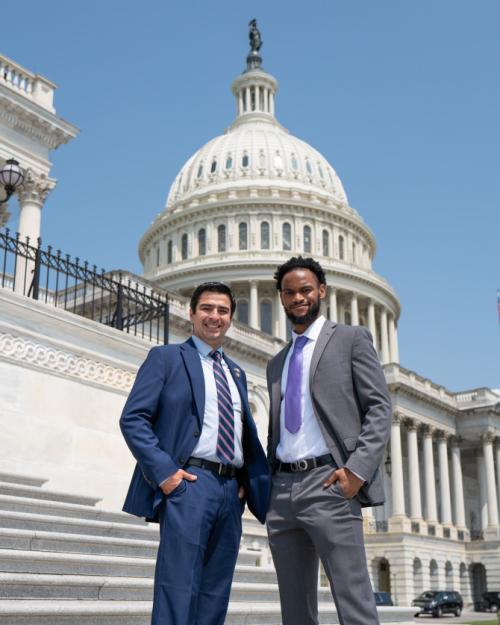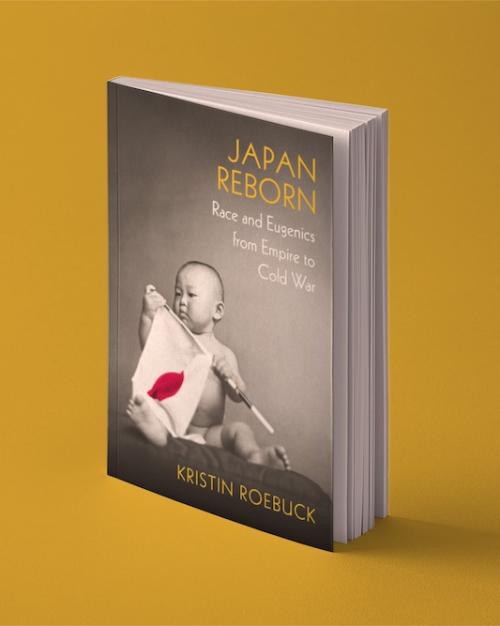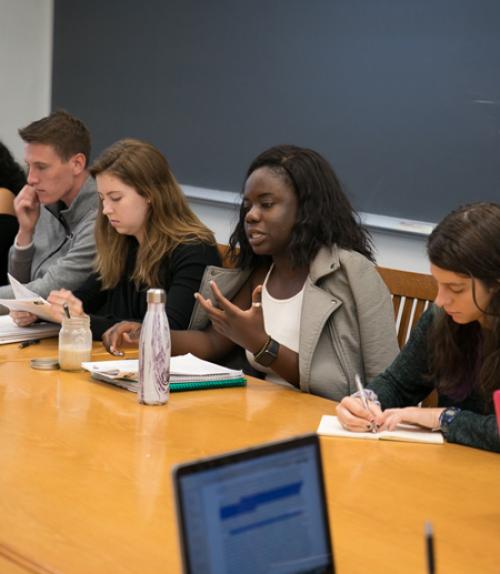A committee of faculty and students in the College of Arts & Sciences has put forward a revised curriculum proposal that could go to a full faculty vote this fall.
The Curriculum Review Committee’s (CRC) proposal continues to emphasize a curriculum that encourages exploration. It introduces changes to the degree requirements that remove barriers to exploration and better reflect the principles, priorities and strengths of the College, CRC members say.
“The CRC has emphasized developing a curriculum that is simple and legible to both faculty and students alike,” said Tom Pepinsky, associate professor of government and CRC chair. “The curriculum proposal replaces a complex system of distribution and breadth requirements with a streamlined and much more logical set of course requirements. Both faculty and students want the Cornell curriculum to facilitate exploration, and we think that this proposal achieves this goal.”
The major curriculum changes under the new proposal include:
- Students will fulfill five different distribution categories in their first four semesters at Cornell, encouraging early exploration.
- Students must satisfy all of the following 10 distribution categories: Arts, Literature, and Culture; Human Difference; Biological Sciences; Physical Sciences; Ethics and the Mind; Social Sciences; Global Citizenship; Statistics and Data Science; Historical Analysis; and Symbolic and Mathematical Reasoning.
- The College will adopt a policy that, for the purpose of completing the language requirement, “language” means any living or extinct human language, including sign languages, offered at Cornell.
- Electives, breadth requirements, and minimum course graduation requirements are removed.
This new proposal addresses concerns expressed by faculty and students after the release of the committee’s final report with recommendations for a proposal in March 2018. An informal group of faculty members met to work through areas of concern in the final report, particularly related to the language requirement, then reached out to other faculty throughout the college to gather input and feedback. Two key faculty in that group included Leslie Adelson, the Jacob Gould Schurman Professor of German Studies, and Sturt Manning, the Goldwin Smith Professor of Classical Archaeology in the Department of Classics.
“At the core of our work, we wanted to highlight the importance of foreign language study as an essential component of foundational learning for a liberal arts education and for global citizenship,” Adelson said.
“We felt we were losing something that has been a considerable part of Cornell’s heritage for some time,” Manning said. “We are an internationally famous place for language teaching, especially for under-taught languages.”
With the new proposal and the 10 new categories, Manning said he thinks 95 percent of faculty concerns have been addressed.
“There are better definitions of the categories, as well as examples,” he said. “And most problems have been raised, thought through and addressed.”
“The current version also reflects the fact that humanists listened to scientists and scientists listened to the needs of the humanities and together we were able to achieve a creative and constructive solution that serves the students of the college well in all respects,” Adelson said.
The 10 new distribution categories include many of the former categories, with a couple of adjustments — splitting the former cultural analysis category into two: global citizenship and human difference and splitting the former mathematics and quantitative reasoning category into two categories: statistics & data science and symbolic & mathematical reasoning.
“The new categories of global citizenship and human difference both speak to very pronounced needs of citizens in the 21st century,” Adelson said.
The language requirement remains the same, except that the definition of language study has been expanded to include sign language.
The committee also decided to remove many of the requirements for electives, breadth and number of courses, with committee members citing the College’s broad curriculum, which already ensures much variety in a student’s course of study. Instead, the proposal focuses on preserving the current requirement that students complete 120 credits of coursework, with 100 credits from Arts & Sciences.
“Students will enjoy the greater flexibility of the proposal, which allows them to fulfill their distribution requirements in a minimum of eight courses instead of nine, and gets rid of redundant requirements for electives and total numbers of courses,” Pepinsky said. “We also expect that they will respond positively to new distribution requirements such as Statistics and Data Science and Global Citizenship.”
The Curriculum Review Committee (CRC), which includes faculty and students from across the college, began its work in 2016. The CRC released a draft proposal in March of 2017 and obtained feedback in more than 30 department meetings, faculty discussion groups and a student town hall. In fall 2017, the committee reviewed the findings in greater depth and continued conversations with various stakeholders across the college, releasing a final report in March of 2018. The Dean’s Student Advisory Committee then issued a student survey to gain feedback on the report. In April 2018, members of the CRC introduced a proposal for distribution requirements and college faculty discussed this proposal in a May 1 all-faculty meeting. The current revised proposal responds to faculty concerns raised during this meeting and in subsequent discussions.
A faculty meeting is planned for Oct. 3 to discuss and potentially vote on the new revised proposal, Pepinsky said.




